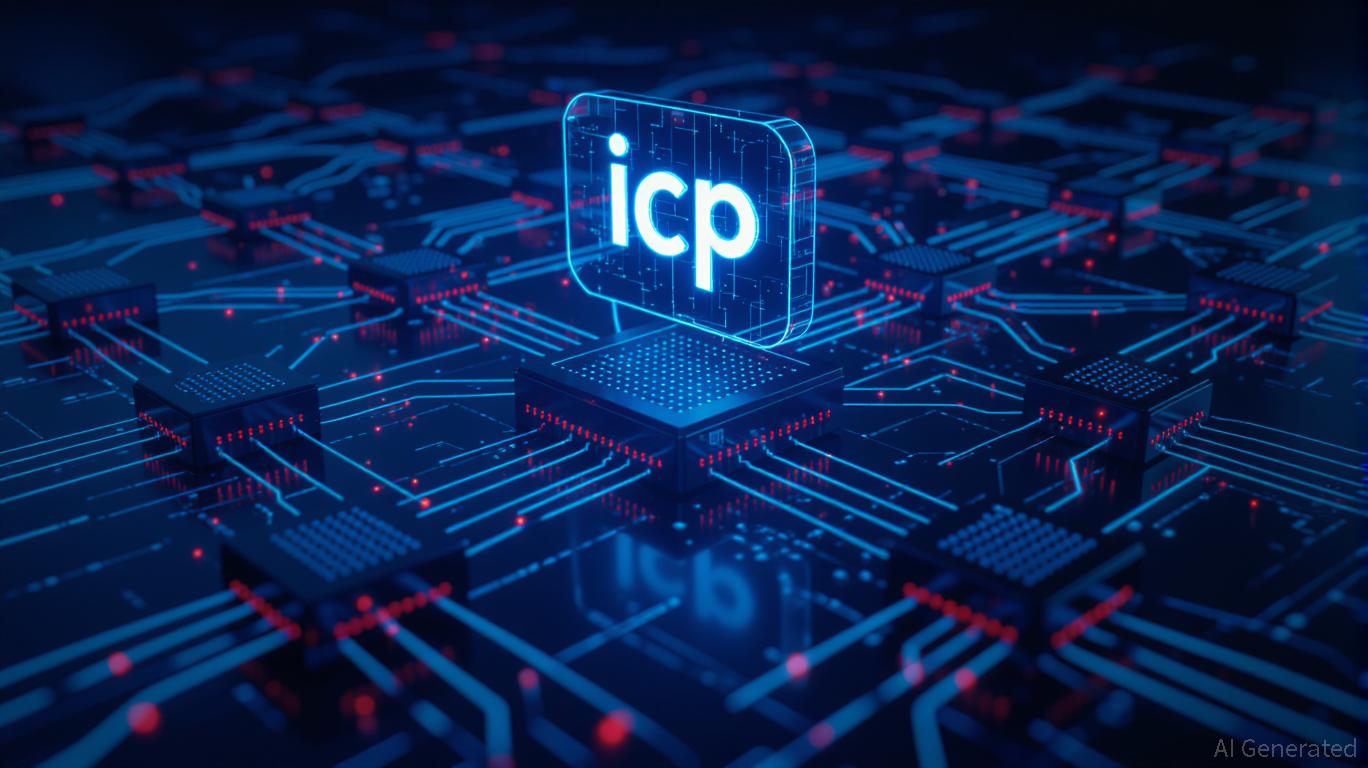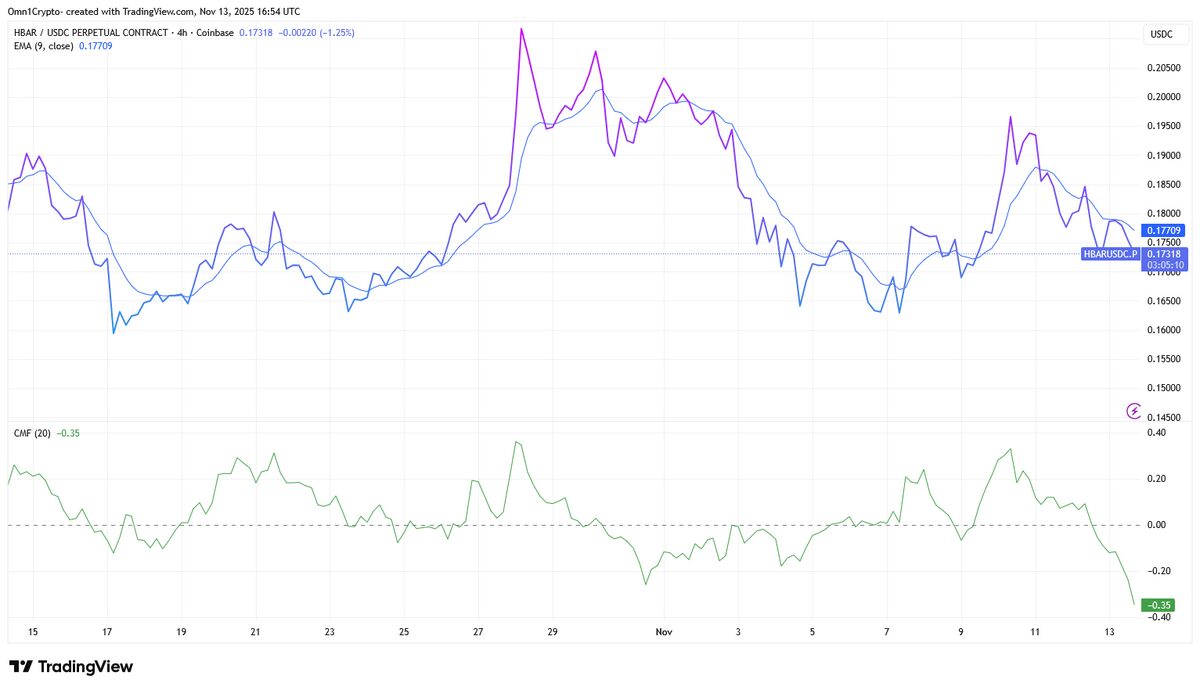ICP Caffeine AI: Is This the Next Game-Changer in AI-Powered Infrastructure?
- ICP Caffeine AI, a decentralized AI cloud engine, challenges traditional providers by offering tamper-proof infrastructure and 20-40% lower inference costs via reverse-gas mechanisms. - The platform partners with Microsoft Azure and Google Cloud to blend decentralized compute with enterprise scalability, aiming to bridge blockchain innovation and mainstream AI adoption. - Despite 56% ICP token growth and $237B TVL, Q3 2025 saw 22.4% dApp activity decline, highlighting adoption challenges against competit
Decentralized Computing: A New Paradigm
ICP Caffeine AI brands itself as an "AI cloud engine," allowing users to create and launch applications through natural language commands. Unlike standard cloud services that depend on centralized systems, ICP’s decentralized framework provides mathematical assurances against data manipulation and loss. This is made possible by orthogonal persistence, which removes the need for separate databases, and Motoko, a programming language designed to safeguard against unintended data erasure.
The platform also introduces a reverse-gas model that lowers AI inference expenses by 20–40%, making it particularly appealing to industries like healthcare and finance, where privacy and cost control are crucial. For example, ICP has formed collaborations with

Market Momentum and Institutional Interest
Since its introduction in late 2025, ICP Caffeine AI has attracted considerable attention in the market. The ICP token, native to the platform, jumped 56% shortly after launch and gained another 30% in the third quarter of 2025, fueled by institutional involvement and the introduction of perpetual contracts on Hyperliquid. By Q3 2025, the ICP network had reached 1.2 million active wallets and a Total Value Locked (TVL) of $237 billion, indicating strong uptake among enterprises.
Yet, this surge has not led to steady user participation. Activity on decentralized applications (dApps) within the ICP ecosystem dropped by 22.4% in Q3 2025, casting doubt on the platform’s ability to maintain user interest beyond the initial excitement. Competitors such as Palantir and BigBear.ai continue to lead in AI analytics, while C3.ai—a more traditional enterprise AI provider—
Strategic Challenges and Opportunities
The disruptive promise of ICP Caffeine AI depends on its capacity to scale practical, real-world applications. While the platform has seen traction in specialized areas—such as generating legal documents with AI and monitoring water quality—wider adoption will require overcoming both technical and cultural obstacles. For instance, non-technical users must trust a decentralized platform with sensitive information, and developers need to adapt to Motoko and orthogonal persistence.
From a hardware perspective, ICP’s dependence on decentralized nodes instead of proprietary AI hardware could hinder its competitiveness against industry leaders like NVIDIA and AMD, who dominate the AI accelerator space. Nevertheless, its strengths in cost savings and data privacy may attract sectors where control over data is essential. The recent integration with Azure and Google Cloud points to a hybrid approach, combining established infrastructure with decentralized computing innovation.
Investment Outlook
For those considering investment, ICP Caffeine AI offers both significant risk and potential reward. Its technological breakthroughs and support from institutions position it as a possible game-changer, but its future hinges on continued user adoption and resolving scalability hurdles. In comparison, C3.ai’s difficulties
Although ICP’s TVL and wallet numbers are impressive, they should be weighed against falling dApp engagement and stiff competition from both centralized and decentralized alternatives. A cautious strategy would involve tracking key indicators such as ICP’s price swings, new partnerships, and real-world implementation progress.
Conclusion
ICP Caffeine AI is clearly altering the conversation around AI infrastructure, presenting a strong alternative to traditional cloud services. Its emphasis on decentralized computing, affordability, and natural language-based development fits with the broader movement toward democratizing AI. However, to avoid remaining a niche solution, the platform must overcome adoption barriers and prove it can scale effectively. At present, it stands as a speculative yet promising contender in the evolving AI infrastructure arena.
Disclaimer: The content of this article solely reflects the author's opinion and does not represent the platform in any capacity. This article is not intended to serve as a reference for making investment decisions.
You may also like
ALGO Drops 5.28% in 24 Hours Following Passkey Breakthrough and Market Volatility
- Algorand's ALGO token fell -5.28% in 24 hours on Nov 13, 2025, amid broader crypto market volatility and macroeconomic concerns. - The Algorand Foundation launched Liquid Auth, a decentralized passkey manager integrated with Pera Wallet, promoting self-custody and privacy in Web3 identity management. - Despite technological innovation, ALGO's multi-timeframe declines (-51.24% in 1 year) highlight liquidity risks and bearish momentum as traders react to market conditions. - Technical analysis shows ALGO b
Bitcoin Updates: Jack Dorsey's Ambitious Bitcoin Plans Met with Doubt Amid Block's Declining Profits
- Block's Square platform enables 4M+ merchants to accept Bitcoin via Lightning Network with zero fees until 2027, aiming to normalize crypto payments. - Dorsey's Bitcoin strategy includes BitKey wallets and Cash App integration, but Q3 earnings fell short, prompting a 11% stock drop and revised price targets. - Competitors like Exodus pivot to stablecoin payments (e.g., Grateful acquisition), while regulators debate $20K stablecoin transaction caps. - Despite Bitcoin's 1.7% 24-hour surge, 80% of users dou

HBAR Dips On Grayscale ETF Delay: Can Canary Swoop In?

Airdrop Combines Equities and Internet Memes to Draw in Individual Investors
- Datavault AI (DVLT) and Scilex (SCLX) will airdrop Dream Bowl 2026 meme coins to shareholders on December 8, aiming to attract retail investors through stock-meme fusion. - The one-meme-per-share distribution triggered a 4.91% pre-market stock surge for DVLT , while short sellers face mandatory meme coin delivery obligations post-November 24 ex-dividend date. - The initiative builds on a $150M Bitcoin partnership with Scilex, leveraging blockchain trends and aligning with broader market optimism for cryp